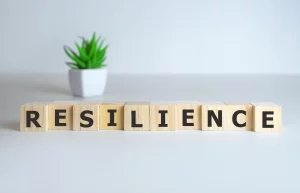Introduction
Every parent wants their child to grow up with confidence and independence. These qualities help children face challenges, make responsible choices, and develop self-esteem and resilience. A child who is confident in their abilities is more likely to succeed in school, social life, and future careers.
Building Confidence in children starts at home, where parents play the most important role in shaping their mindset. Encouraging independence teaches kids how to solve problems, take initiative, and believe in their abilities. By creating the right environment, you can help them develop strong self-worth while feeling secure and loved.
This article explores practical ways to raise confident and independent children. These simple strategies will help your child develop responsibility, decision-making skills, and resilience, preparing them for a successful future.

Confidence and independence are essential for a child’s personal development and long-term success. When children believe in themselves, they are more willing to try new things and overcome setbacks. Independence gives them the ability to handle responsibilities on their own, preparing them for adulthood.
- Confidence allows children to face challenges without fear of failure.
- Independent children learn to make responsible decisions and problem-solve effectively.
- Together, confidence and independence create a strong foundation for success and happiness.
Encouraging Healthy Self-Esteem

1. Give Praise and Encouragement
Children thrive on positive reinforcement. When they feel valued, they develop a strong sense of self-confidence. Encouragement helps them understand that their efforts are meaningful, even when they don’t succeed.
- Praise effort over results. Instead of saying, “You’re so smart,” say, “I love how hard you worked on this!”
- Encourage a growth mindset, showing that mistakes are part of learning.
- Celebrate small achievements to boost self-esteem and help them feel capable.
2. Allow Them to Make Choices
Giving children age-appropriate choices helps them feel empowered. It teaches them how to assess situations and make decisions, which strengthens their confidence. Start small and gradually introduce more significant choices.
- Let them choose between two outfits or meals to make them feel in control.
- Allow them to decide which activity to do first (homework or playtime).
- Encourage decision-making by teaching them to weigh options and consider consequences.
3. Teach Problem-Solving Skills
Problem-solving is a crucial skill that helps children become independent thinkers. When kids learn how to handle difficulties on their own, they feel more confident in their abilities.
- When your child faces a challenge, ask guiding questions instead of giving solutions.
- Encourage critical thinking by discussing different ways to solve a problem.
- Support them in trying new things, even if they make mistakes along the way.
Encouraging Independence in Daily Life

4. Assign Age-Appropriate Responsibilities
Giving children responsibilities helps them feel capable and self-sufficient. Simple chores teach them accountability, organization, and time management. Tasks should be appropriate for their age and skill level.
- Toddlers: Pick up toys, put clothes in a hamper.
- Preschoolers: Set the table, feed pets, dress themselves.
- School-age kids: Make the bed, pack their lunch, do small chores.
- Teenagers: Cook simple meals, manage schedules, handle personal finances.
5. Encourage Independent Play
Independent play helps children develop creativity and problem-solving skills. When kids play alone, they learn how to keep themselves engaged, use their imagination, and build resilience.
- Provide open-ended toys like building blocks, puzzles, or art supplies.
- Allow unstructured playtime without too many instructions.
- Let them explore activities without constant supervision or intervention.
6. Let Them Handle Their Own Conflicts
Children gain emotional intelligence and problem-solving skills when they learn to resolve disagreements on their own. Instead of immediately stepping in, guide them toward finding solutions independently.
- Teach calm communication and active listening when discussing conflicts.
- Help them express feelings with “I” statements, e.g., “I feel sad when you take my toy.”
- Encourage them to negotiate and compromise, building confidence in handling social situations.
Building Emotional Strength and Resilience

7. Model Confidence and Independence
Children learn by watching their parents. If they see you approach challenges with confidence, they will develop the same attitude. Be a role model by handling problems with resilience and optimism.
- Speak confidently and assertively in front of your child.
- Show them how to face challenges with a positive attitude.
- Handle mistakes without self-criticism, teaching them that failure is a learning experience.
8. Encourage Healthy Risks and Challenges
Letting children take safe risks helps them develop courage and adaptability. It shows them that trying new things can be exciting and rewarding.
- Encourage them to try new sports, hobbies, or social situations.
- Let them walk to school, ride a bike, or complete tasks alone.
- Support their independent learning by letting them research answers to their own questions.
9. Teach Emotional Regulation
Understanding emotions is key to handling stress and building resilience. Teaching children how to manage their feelings prepares them for future challenges.
- Help them identify emotions and express feelings in words.
- Teach calming techniques like deep breathing and mindfulness.
- Encourage journaling, drawing, or talking as healthy ways to express emotions.
Fostering Social and Life Skills

10. Encourage Social Interaction
Confidence grows when children engage with different people and build strong relationships. Teaching them how to communicate and interact helps them feel comfortable in new situations.
- Arrange playdates, group activities, or team sports to improve social skills.
- Teach conversation techniques like eye contact and active listening.
- Help them navigate new social settings with confidence.
11. Let Them Handle Money
Financial independence starts early. Teaching children basic money management skills will prepare them for adulthood and responsibility.
- Give a small allowance and let them budget their spending.
- Teach saving, spending, and giving to build financial awareness.
- Let older kids earn money through chores or small jobs.
12. Encourage Self-Care and Hygiene
Teaching self-care helps children become responsible for their well-being. It also encourages them to take ownership of their daily routines.
- Show them how to brush teeth, dress, and organize their school bag.
- Let them prepare simple meals and clean up after themselves.
- Teach them time management by setting daily schedules.
Final Thoughts
Raising Confident and Independent Children is about trust, encouragement, and patience. Kids thrive when they feel capable, and parents play a crucial role in nurturing their growth.
Key Takeaways:
- Encourage decision-making and problem-solving.
- Give responsibilities that build self-sufficiency.
- Model confidence and resilience in daily life.
- Allow mistakes and teach them how to learn from failure.
- Support emotional growth by teaching self-regulation.












